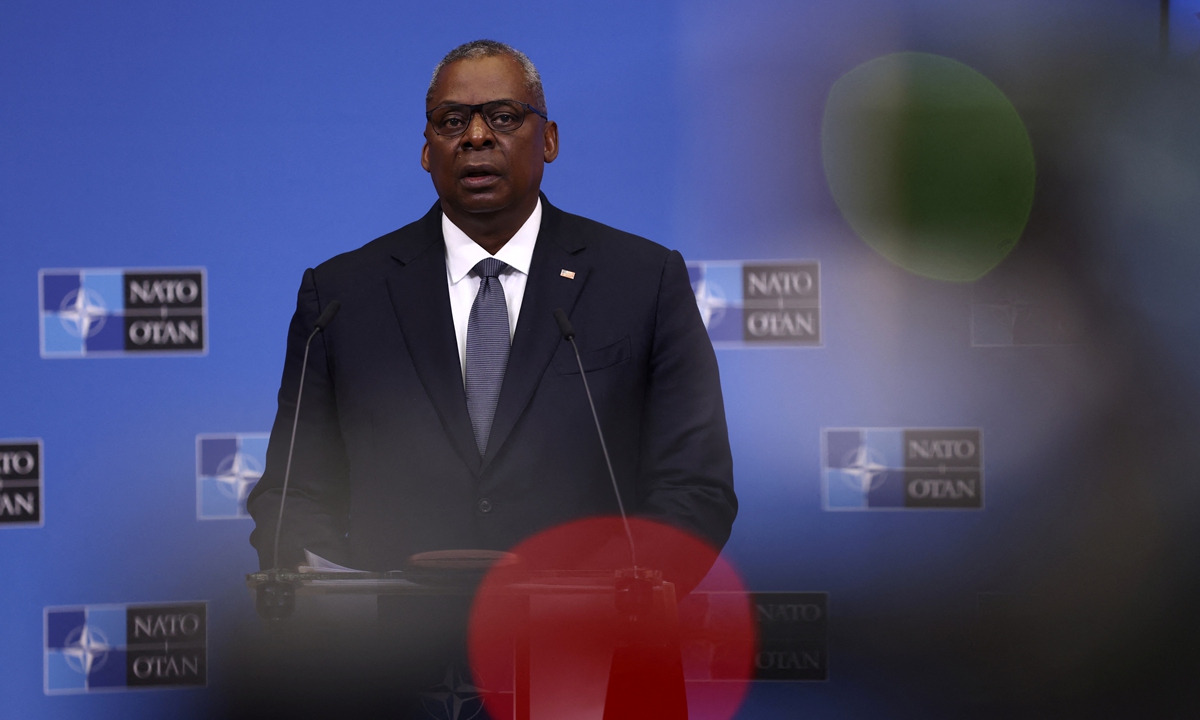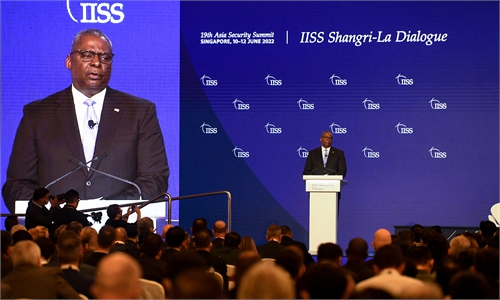US eyes more bases in Philippines, but 'Manila won't mount Washington's chariot' at cost of balance

Lloyd Austin Photo: AFP
US Secretary of Defense Lloyd Austin departed for the Philippines to discuss larger military presence in the Southeast Asian country, including expanding access to military bases, but observers remain skeptical of how much the US can mobilize the Philippines to move toward Washington's strategic interests in the Asia-Pacific.
The US wants to diversify its military deployment to facilitate its "distributed warfare" through partnerships with regional countries, but the Philippines, despite its willingness to enhance security ties with the US, is managing a fine line to avoid getting involved in the US-China confrontation, according to military analysts.
The US media have been hyping "big news" about the visit, saying that Austin would reach an agreement with Philippine President Ferdinand Romualdez Marcos Jr. to open four more US military sites at Philippine bases under the Enhanced Defense Cooperation Agreement (EDCA).
One of the bases is located in Luzon Island close to China's island of Taiwan and another located in Palawan, which was visited by US Vice President Kamala Harris last November and is close to China's Nansha Islands.
The US Marine Corps on January 26 officially opened its first new base on island of Guam, and in early January, while Japan approved a new US Marine quick-reaction force on Okinawa.
The US is seeking to deploy more on the second island chain while maintaining capabilities on the first island chain, Zhang Xuefeng, a Chinese mainland military expert told the Global Times. He explained that the US hopes that increasing accessible bases in Philippines can block the People's Liberation Army's (PLA) within the first island chain or at least thwart PLA operations.
The US wants to increase operational flexibility in the scenario of a war by expanding access to foreign bases, but the host country should be cautious of being used as a "shield" for Washington's belligerence, Zhang said.
Xu Liping, director of the Center for Southeast Asian Studies at the Chinese Academy of Social Sciences, saw the move as more symbolic than of practical significance, because US operations in those Philippine bases would be very limited.
An EDCA allows US access to Philippine bases for joint training, pre-positioning of equipment and building of facilities such as runways, fuel storage and military housing, but not a permanent presence.
Analysts also noted strong opposition among local civilian populations against increased US deployments.
According to media reports, the US will help the Philippines modernize its military and has included the Philippines as a pilot country in a maritime domain awareness initiative. The two countries also recently agreed to conduct more than 500 activities together throughout the year.
The Philippines looks forward to enhancing defense capabilities, Xu said, but the country also has a clear mind on how to manage relationship with China and US, and its priority lies in economic development, infrastructure and living standards, where China is playing a key role among all its regional partners.
The EDCA was revived after Marcos took office, but the president has also expressed great hope, confidence and determination to further develop bilateral relations to a higher level in a friendly atmosphere during his state visit to China in January.
During the visit, China and the Philippines signed a slate of cooperation agreements and announced the resumption of negotiation on joint oil and gas cooperation.
Should the US-Philippine agreement be finalized, Xu predicted the US will herald it as major progress in its Indo-Pacific Strategy targeting China, while the Philippines would be very careful in its use of rhetoric, being reluctant to impact China-Philippine relations.
It is difficult for the Philippines to satisfy all parties against the backdrop of escalating China-US confrontation, but Chinese analysts reminded the future of the Philippines lies in the Asia-Pacific region, not as Washington's cannon fodder.
The Philippines emphasizes that its military cooperation with the US "does not target any specific third party." But if the US has no "third party" on mind, it would not be so interested in the Philippines, analysts said.
Frequent visits to Philippines by senior US officials in recent months demonstrated that Washington is keen on recruiting Manila as a pivot in Southeast Asia to implement its Indo-Pacific Strategy, and the fine line of balance would be increasingly difficult to maintain.

